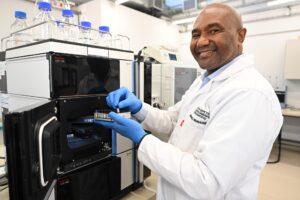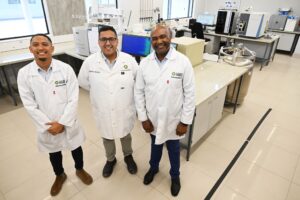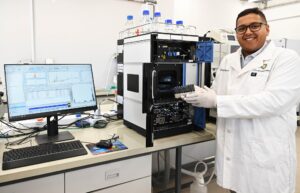Cape Town: The City of Cape Town will install new equipment for the Scientific Services to encourage the City’s Water Strategy.
The water strategy of the city critically anticipates keeping the dams full and taps running for many coming years. The government is investing in modern laboratory equipment that will help to ensure continuous access to water resources of the highest standard.
The Scientific Services Branch of the city is a world class facility that works at the forefront of water and air quality research. The facility boasts a team of highly qualified scientists who are well-equipped to monitor and assess the efficacy of water and wastewater treatment across Cape Town.

As per the sources, the city has invested more than R30 million in laboratory equipment. The equipment includes instrumentation capable of analysing metals, cyanides, total organic carbon and disinfection by-products, among others, in all water matrixes.
Notably, the equipment purchased also enabled industrial effluent finger-printing and waterborne pathogen identification.
Moreover, the city is also processing the upgrade of its Laboratory Information Management System to the latest version. It will enable Scientific Services to timeously capture and report analytical results to various branches within the City.

City’s Member of the Mayoral Committee for Water and Sanitation Councillor – Dr Zahid Badroodien, said that Scientific Services now has the capability to produce even more extensive and comprehensive data sets which will support the directorate in planning and directing resources more effectively, paving the way for greater water resilience.
In order to stay abreast of the latest technology and testing requirements, the City made an R13 million investment into its laboratories for the financial year 2023-24, with two new innovative multi-function additions that are Liquid Chromatography Mass Spectrophotometry (LC-MS/MS) and Gas Chromatography Time of Flight Mass Spectrometer (GCxGC-TOFMS).
The total cost of the LC-MS/MS is R7 million and is used to detect the presence of extremely low levels of toxins in water bodies such as dams, rivers and vleis. The toxins are often caused by algal blooms, which occur when toxin-producing algae grow excessively in a body of water.
It can also identify the small concentrations of harmful chemicals that can affect humans.

Whereas the GCxGC-TOFMS costs R6 million and is used for the analysis of chemicals present in extremely low concentrations in water matrixes. Both instruments are capable of detecting trace levels of chemical compounds.
Councillor Badroodien said, “This new LC-MS/MS and GCxGC-TOFMS equipment will greatly contribute to building skills and capacity to support the city’s water strategy and new water programme, especially as the city is currently exploring water re-use which is expected to add 7% to Cape Town’s supply by 2040.”

